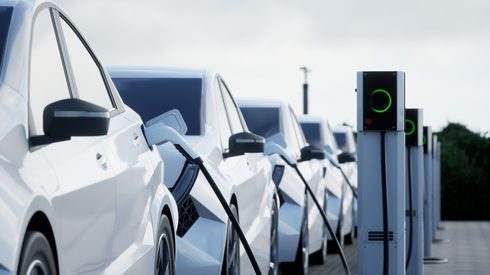
Chile’s minister of mining, Aurora Williams
“[Copper] smelting capacity is a fundamental policy for this government and it won’t be affected by market conditions,” said Williams told Fastmarkets in Chile’s capital city, Santiago, on Thursday April 18. “Developing new, world-class smelters is a crucial aim for the country.”
The Chilean government’s stance comes at a time when copper smelters are struggling with record-low treatment and refining charges (TC/RCs) – the fees they charge miners to turn copper concentrate into metal.
An increase in smelting capacity in China, coupled with lower-than-expected copper concentrate production, has left smelters around the world struggling to find sufficient material to process. That makes it a difficult time to bring on new smelting capacity.
Fastmarkets calculated its copper concentrates TC index, cif Asia Pacific at $0.10 per tonne on Friday April 19, which is an all-time low. That’s down from $89.10 per tonne on August 11, 2023.
“There are strong economic reasons why Chile, the world’s largest copper producer, should also be able [smelt copper concentrate],” Williams told Fastmarkets. “But there are also strategic reasons why we need our own smelters.”
In recent years, Chile has suspended production at one important state-owned copper smelter and shut another. Both struggled with high costs and environmental problems. Yet Williams is adamant that the lost capacity will be replaced by a new Chilean smelter.
This year, state-owned copper purchaser and smelter, Enami, suspended operations at its Hernan Videla Lira smelter, which can produce 300,000 tonnes of refined copper per year. That followed the 2023 decision by state-owned miner Codelco to close its Ventanas smelter, which had an output of 400,000 tonnes of copper per year.
“[But] the new smelter will have a capacity of 800,000 tonnes, which means that it will more than cover the missing capacity from the two smelters,” Williams said.
She also confirmed that the new smelter will be built on the same site as the Hernan Videla Lira smelter at Paipote in the Atacama region.
“We are open to working with the private sector,” Williams said. “As a state, we can drive this policy, but we also want private sector capital and technology to be involved.”
On April 15, Codelco chairman Máximo Pacheco told Fastmarkets the company was looking for private-sector investment for a new smelter.
Lithium – white gold
Along with Argentina and Bolivia, Chile is part of the so-called “lithium triangle,” which is thought to contain more than 50% of global reserves of the battery material. But while Argentina has opened up its lithium resources to a range of international companies, in Chile, the state will play a major role in the industry, according to Williams.
At present, Chile’s lithium production is centred in the Atacama salt flat, where two private-sector firms, Albermarle and SQM, have operations.
“This government respects business contracts and we are not trying to change the existing terms,” Williams said.
But she said Codelco, will take a majority stake in existing operations in Atacama, along with any new developments in Maricunga – another high-potential lithium salt flat that has been designated as strategic by the Chilean government.
“The SQM contract runs out in 2030, which is very soon [from a] mining perspective because it’s a long-term industry, so Codelco is already negotiating a partnership with SQM,” Williams said.
“In [Atacama and Maricunga] Codelco will automatically have a majority stake of 50% plus one share,” she added.
Fastmarkets price assessment for lithium carbonate 99.5% Li2CO3 min, battery grade, spot prices cif China, Japan & Korea was $13.00-14.25 per kg on April 22.
A central part of the Chilean government strategy is to increase the economic benefits the country receives from its lithium resources.
“Up to 25% of the lithium currently being produced by private sector companies in Atacama will be sold at a preferential price to companies that will add value to that lithium [within] Chile,” Williams told Fastmarkets.
Two Chinese companies have already been awarded SQM lithium quotas, however.
“It’s not realistic to expect Chile to start producing batteries or electric vehicles straight away,” Williams said. “We expect [the two Chinese companies] to make intermediary lithium products that can be used to make batteries.” Those products are likely to then be sent to battery manufacturers in China.
Enami, has been granted concessions to develop four, second-tier lithium assets and will also look to bring in private-sector partners.
The Chilean government recently outlined its plans regarding salt flats in the country and, in addition to the strategic Atacama and Maricunga regions, 26 others areas requiring government participation are up for tender from April until July this year, a further five areas have been deemed “public,” with no need for state involvement, and 38 regions fall into the “protected” category, which means they cannot be developed.
Want to hear more insights on this market? Subscribe to Fast Forward, your definitive podcast for the critical minerals and battery raw materials markets, today. Your host, Andrea Hotter, will address burning topics in the critical minerals market including the latest trends, market buzz and game-changing technologies that are shaking up the sector. Find out more here or subscribe on Spotify, Apple Podcasts, Amazon Music or wherever you get your podcasts to get the latest episodes when they are released.






